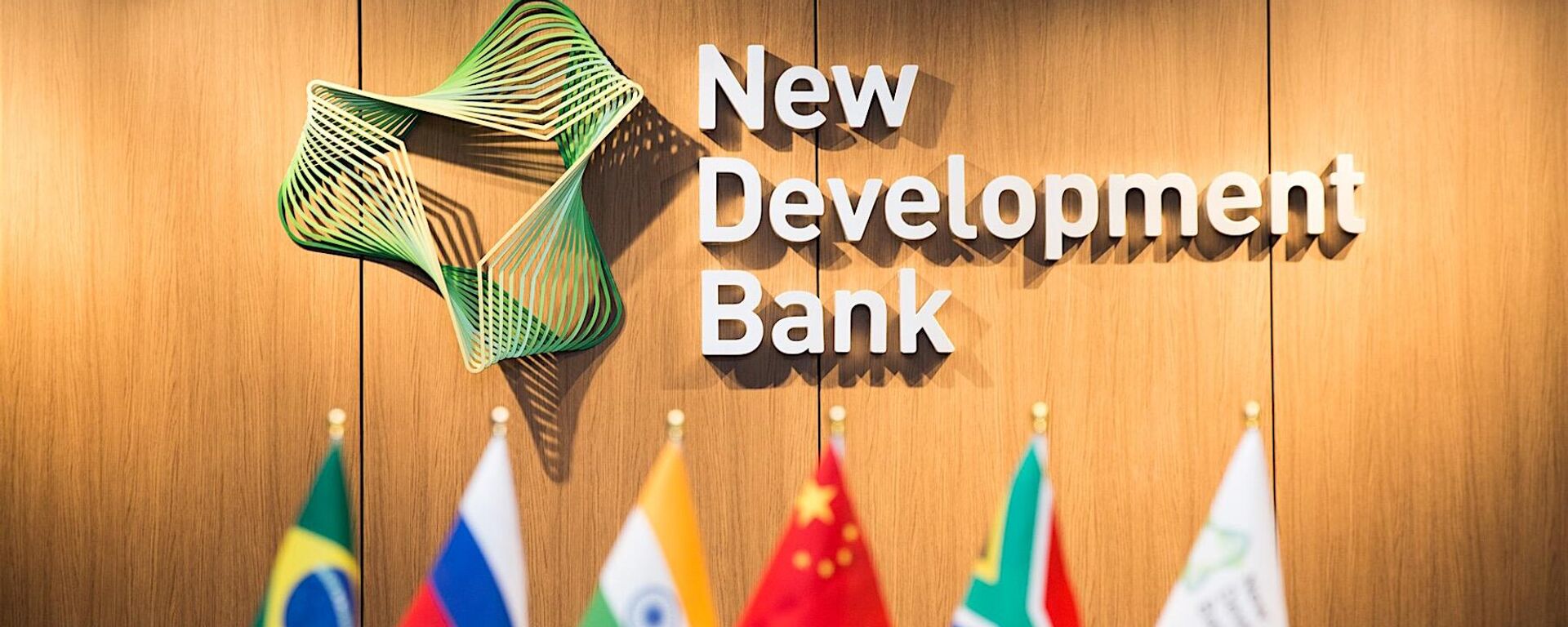https://en.sputniknews.africa/20230822/brics-new-development-bank-becomes-important-lender-for-emerging-markets-president-1061518727.html
BRICS New Development Bank Becomes Important Lender for Emerging Markets: President
BRICS New Development Bank Becomes Important Lender for Emerging Markets: President
Sputnik Africa
In July 2014, the New BRICS Development Bank was established. Its principal aim is to finance stable infrastructure and development projects in BRICS's member... 22.08.2023, Sputnik Africa
2023-08-22T11:21+0200
2023-08-22T11:21+0200
2025-03-24T09:02+0100
2023 brics summit in johannesburg
bank
new development bank (ndb)
china
russia
south africa
india
brazil
dilma rousseff
https://cdn1.img.sputniknews.africa/img/07e7/07/1b/1060833028_0:0:3069:1726_1920x0_80_0_0_065b26b59c587c506380fd255bf69c5a.jpg
BRICS' New Development Bank (NDB) has great development potential and will turn into an important financial institution for emerging markets and developing countries, the Financial Times newspaper reported on Tuesday, citing the lender's head, former Brazilian President Dilma Rousseff. She added that the lender's focus is to become "a bank made by developing countries for themselves." The Shanghai-based bank was established in 2014 by Brazil, Russia, India, China, and South Africa and was later joined by Bangladesh, the United Arab Emirates and Egypt. Uruguay is currently in the process of joining the NDB. The bank's goal is to mobilize resources for infrastructure and sustainable development projects in emerging markets and developing countries. The BRICS group of major emerging economies - Brazil, Russia, India, China and South Africa - will hold a summit in Johannesburg from August 22-24. The summit's agenda includes economic relations, trade infrastructure and the potential switch to a common currency to reduce member states' reliance on the US dollar.
https://en.sputniknews.africa/20230821/south-africa-receives-over-5bln-from-brics-bank-for-infrastructure-projects-1061485347.html
china
russia
south africa
india
brazil
Sputnik Africa
feedback@sputniknews.com
+74956456601
MIA „Rossiya Segodnya“
2023
Sputnik Africa
feedback@sputniknews.com
+74956456601
MIA „Rossiya Segodnya“
News
en_EN
Sputnik Africa
feedback@sputniknews.com
+74956456601
MIA „Rossiya Segodnya“
Sputnik Africa
feedback@sputniknews.com
+74956456601
MIA „Rossiya Segodnya“
bank, new development bank (ndb), china, russia, south africa, india, brazil, dilma rousseff
bank, new development bank (ndb), china, russia, south africa, india, brazil, dilma rousseff
BRICS New Development Bank Becomes Important Lender for Emerging Markets: President
11:21 22.08.2023 (Updated: 09:02 24.03.2025) In July 2014, the New BRICS Development Bank was established. Its principal aim is to finance stable infrastructure and development projects in BRICS's member states and developing countries in general.
BRICS' New Development Bank (NDB) has great development potential and will turn into an important financial institution for emerging markets and developing countries, the Financial Times newspaper reported on Tuesday, citing the lender's head, former Brazilian
President Dilma Rousseff. "We’ll [NDB] transform ourselves into an important bank for developing countries and emerging markets," the newspaper reported, quoting Rousseff as saying.
She added that the lender's focus is to become "a bank made by developing countries for themselves."
The Shanghai-based bank was established in 2014 by Brazil, Russia, India, China, and South Africa and was later joined by Bangladesh, the United Arab Emirates and Egypt. Uruguay is currently in the process of joining the
NDB.
The bank's goal is to mobilize resources for infrastructure and
sustainable development projects in emerging markets and developing countries.
The BRICS group of major emerging economies - Brazil, Russia, India, China and South Africa - will hold a summit in
Johannesburg from August 22-24. The summit's agenda includes economic relations, trade infrastructure and the potential switch to a common currency to reduce member states' reliance on the US dollar.



